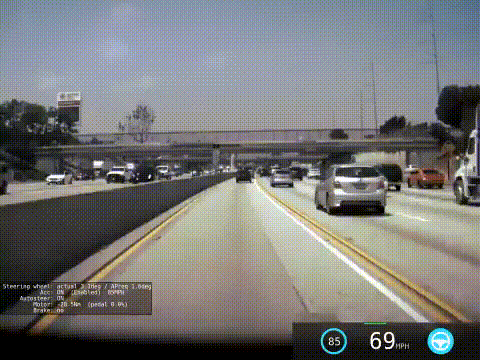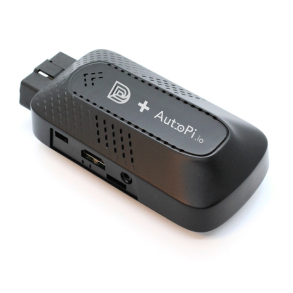“Imagine if objects could talk to each other.”
I was two weeks deep in an advisory stint with DIMO when I had my first 1:1 chat with Founder and CTO Yevgeny Khessin. The allure of a user-owned network, enabling people to take their data back from companies profiting off it, had drawn me in. And I stuck around when I realized what an impressive team they’d gathered and how rapidly they were progressing.
I knew Yev’s co-founders, Andy Chatham and Rob Solomon, from our days in Downtown Vegas, working on self-organization projects with my dear friend Tony Hsieh (many years before things went very tragically and publicly south for him). Rob and Andy were Venture for America fellows (as is DIMO co-founder Alex Rawitz), in Vegas to support a burgeoning tech community in a place few would consider a top entrepreneurial talent hub. Even fresh out of college they were impressive - smart guys who seemed to really care about building businesses that generated positive impact as well as profit. So it made sense that a decade later, DIMO’s Vision and Mission reflected a savvy “do well by doing good” model.
My first two weeks were a crash course in translating Web 3 jargon and awkwardly lurking in the chaotic corners of Discord. Given that DIMO’s model integrates cutting edge approaches on multiple fronts, it was unsurprising that I had as many questions as answers. The foremost of which was, what the hell are you guys building (and why)? His answers blew me away.
The DIMO Future
DIMO — Digital Infrastructure for Moving Objects —sounds like tech bro bingo. IOT, decentralized, autonomous, tokens, DAO’s. And Yev is the requisite self-effacing Eastern European techie leading the Engineering team. I may as well have been speaking a different language when I came in asking about Values and People and Culture. Yet when he did (rarely) speak up, it was about his team. And how to best support them.
Unlike what you might expect from someone in his role, Yev is warm. He laughs easily. And doesn’t mince words. He wore a puffy coat with a fur collar and had a little orange cat in the background of his otherwise blurred Zoom screen, at his Ann Arbor home in the “meat space” (physical world), where some of the distributed team is based. Rumor was that he is the rare Engineer who is also adept at swimming in the Business lane. I was curious about his vision for the company and he quickly told me it was an operating system for the real world. It wasn’t until we logged off that I fully grasped the implications of just how transformative a vision that was — and how foundational to almost all of our other visions of the future.I asked Yev to explain - how would this change my life? What would the future they are building look like? He explained that right now, people can “talk” to some objects, a little bit (e.g. think of turning up your sonos with your phone).
But DIMO aims to get all kinds of objects speaking up - with people and each other - starting with vehicles and eventually expanding to other IOT objects. In DIMO’s future, you may one day come home to find your appliances, home entertainment, security, and wearables deep in conversation. And in that future, those objects can be optimized for convenience, health, creativity, safety, productivity, romance, rest, relaxation - the possibilities are endless. I can set my preferences for vibe, temperature, lighting, security, volume — even the wallpaper — and when I arrive at home, work, or an airbnb, the things would oblige me. An operating system for the real world.
Starting with Cars
Yev’s background is in automotive — he connected millions of consumer vehicles to the internet at GM, Ford, VW, and built dispatch systems for Autonomous Vehicles at Ford aAnd Argo.AI. He linked up with Andy, who was responsible for operating fleets of AVs with companies like Waymo, and building consumer mobility products for Transdev. They connected over the issues caused by centralized control of robots driving on public roads - lack of transparency into faults, limited public and regulatory trust, and inability to scale past pilot projects.
So it makes sense that if DIMO is making objects talk, the first objects are cars (and trucks). And given that cars produce far more data than anything else, enabling them to speak to one another would make our every day lives much better (faster, safer, cheaper transportation, anyone?). It also means a lot less misery when buying used vehicles and bringing your car to the mechanic, because the owner is equipped with accurate information about the condition and performance of the vehicle.

Data on performance, safety risks, and accidents shouldn’t be secrets shared only with manufacturers - it should be available to consumers as well. You need only look at the Boeing 737 Max to see how profit motive and lack of transparency result in fatal tragedies. Opening data on fires, crashes, and technology flaws will save lives and rapidly improve vehicle technologies, enabling science fiction to become part of our daily lives. This kind of transparency is necessary for things like autonomous vehicles to safely exit the restricted areas (i.e. test labs) where they now operate.
Not to mention that transportation is responsible for 29% of global greenhouse gasses. DIMO aims to tackle that number by first making users aware of how their choices impact this number, and aligning financial incentives around helping them reduce it. Simple changes like when you charge your EV can make a big difference.
Giving Your Stuff a Wallet
In order for this to work, objects need their own wallets and unique identities, which enable the objects’ owners to benefit from their data — turning the information these objects collect into tokens, insurance discounts, increased resale values, and a whole litany of other ways you can take back the data so many big companies are currently profiting from.
Because DIMO-enabled devices have wallets, they can be paid for remaining connected. Users can opt in to sharing at the level they feel comfortable. And because DIMO is launching a governance token, which controls the treasury of the project, its resources are cleanly under “user control.” $DIMO, (the token they are launching) is designed around a powerful observation: useful token distribution models are able to convert speculative capital into production capital more efficiently than traditional companies. In other words, money can more rapidly go to making the product(s) better for users.
This means new features, better apps, services, and faster hardware product development. And because they’re built on shared infrastructure and open identities, developers can combine them in new ways and trust that they’ll be able to make money and acquire users into the future. What’s good for the network, is good for the users.

The DIMO Roadmap
With 2 million in sales from their two month beta and $9M in investment from some seriously impressive backers, Yev and the rest of the DIMO team are well equipped to start moving the physical world into the digital one. Unlike goofy looking NFT’s and the trendy metaverse, this is a version of Web 3 that doesn’t require hype to drive impact. The team already has 25,000 vehicles added to the platform, 3,500 devices sold in a preorder, and 1,200 vehicles streaming data every day.
I asked Yev about his personal goals — who did he want to be when he grew up? He laughed as if no one had ever asked him such a silly question. This is an Engineer’s dream project - unlike the boring SaaS platforms out there, DIMO offers the tech team horizontal mobility. It combines hardware, software, frontend, backend, blockchain, cars, cloud systems, and mobile apps. And unlike many Web 3 projects, it impacts the average person, who may not yet invest in crypto, but almost certainly uses vehicles.
Their mission is a paradigm changing one that could genuinely improve peoples’ lives. But as a Ukrainian, Yev prefers to celebrate achievements after the fact, rather than talk about a big game in advance. I wondered aloud how he was able to focus, given the horror in Ukraine right now. He said that by continuing to show up in this way — building something meaningful and opening a DIMO office after the war — he would play his role.
With an open, user centric, crowdsourced ethos, he needs to build a community of believers and builders. They’re committed to “building in the open” - a unique part of the project is the 6100 users on their Discord helping make the project better.
Who else could help him make this powerful vision a reality? “Developers (especially those working on car related applications). Early tech adopters. Car rental/car sharing folks.” Talented people interested in dipping a toe in Web 3, without sacrificing real world impact. Techies who understand the transformative value of objects talking to each other. Visionaries who want to build an operating system for the real world.
If you are one of those people, check out DIMO’s jobs page here. If you know one of those people and make an introduction that turns into a (Developer / Engineering) hire, we are offering a $2k referral fee paid in the referrer’s choice of cash or crypto. You can reach out directly at [email protected].